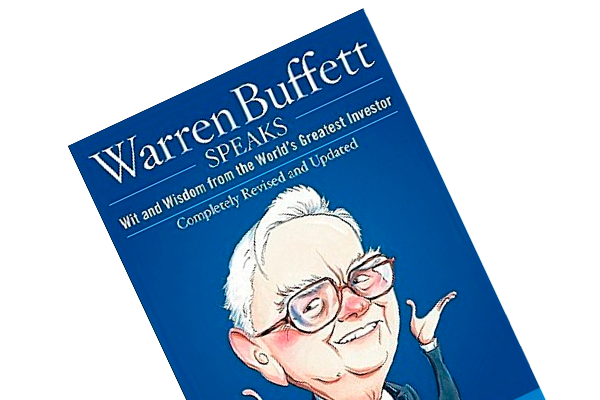Abstract
- Warren Buffett Speaks is a collection of quotes from the Oracle that outlines what it takes to be a true value investor: principled, rational, independent as well as having an appreciation of your limitations and areas of expertise – your circle of competence.
Like all value investors, I idolize Warren Buffett. One of his great strengths is his ability to boil down complex ideas to a sentence, story or metaphor. Warren Buffett Speaks is a collection of statements that the Oracle of Omaha has voiced throughout his career.
Be principled
The Chairman of GEICO (which is a wholly-owned subsidiary of Berkshire Hathaway) was golfing with Warren and a few other notables. They made Warren a wager: If he was able to make a hole-in-one during the next three days, the Chairman & Co. would pay him $20,000. If Warren couldn’t do it, he was going to pay $10. Warren declined the offer, which caused some teasing by the group (Warren being a billionaire and all..). He responded: “If you let yourself be undisciplined on the small things, you will probably be undisciplined on the large things as well. “(p. 55)
Be rational
A recurring theme in practically all books on value investing is rationality. The ability to equate feelings such as panic, greed, euphoria etc., and rather keep a cool head is not as easy as one might think. You need to understand why something happens, which will help you act wisely. Warren puts it as such: “Only when you combine sound intellect with emotional discipline do you get rational behavior.” (p. 86)
Know the difference between price and value
In regards to the old price-value debate and whether the markets are efficient or not, Warren responds: “I’d be a bum on the street with a tin cup if the markets were always efficient.” (p. 93) In length, Warren discards the notion of an efficient market where price and value is one and the same. Instead, he believes that “price is what you pay, value is what you get.” (p. 99)
Know your circle of competence
Warren has very rarely lost money on his investments. He attributes this fact to strict discipline and awareness of his own limitations, both of which are embedded in his circle of competence concept. He recommends investors to specialize within a few industries, markets or segments, hence allowing you to competently analyze these companies.
Warren prefers to stay within his circle of competence, which he underscores via a sports metaphor: “I call investing the greatest business in the world because you never have to swing. You stand at the plate […] and nobody calls a strike on you. There’s no penalty except opportunity lost. All day you wait for the pitch you like; then when the fielders are asleep, you step up and hit it.” (p. 111)
He cements this point further: “Draw a circle around the businesses you understand and then eliminate those that fail to qualify on the basis of value, good management and limited exposure to hard times. […] If we can’t find things within our circle of competence, we won’t expand the circle. We’ll wait.” (p. 118-199)
Think independently
Both Warren and Charlie Munger are independent thinkers. They’re not interested in Wall Street’s “hot stock tips” or the “next new thing”. They stay within their circle of competence, analyze the businesses themselves, and make any decision themselves based on their assessment. Charlie puts it neatly: “My idea of a group decision is to look in the mirror.” (p. 113)
Appreciate pricing power
Warren worships businesses that are able to increase prices at or above the rate of inflation. He refers to this ability as pricing power. It’s often beloved brands and products that customers are willing to pay a price premium for, i.e. Coca-Cola or Wrigley gum Gum. Hence, price flexibility is a trait of the infamous ‘good business’. He uses See’s Candy as an example of such a business: “If you own See’s Candy, and you look in the mirror and say “mirror, mirror on the wall, how much do I charge for candy this fall”, and it says “more”, that’s a good business.” (p. 155)
Appreciate frachise value
Warren says pricing power and franchise value are cousins. He states that a strong franchise (a business with a strong and ever-widening moat) often enjoys the benefits of pricing power. He paints quite the picture when describing a strong franchise: “Wonderful castles, surrounded by deep, dangerous moats where the leader inside is an honest and decent person. Preferably, the castle gets its strength from the genius inside; the moat is permanent and acts as a powerful deterrent to those considering an attack; and inside, the leader makes gold but doesn’t keep it all for himself. Roughly translated, we like great companies with dominant positions, whose franchise is hard to duplicate and has tremendous staying power or some permanence to it.” (p. 146)
Great, easy-to-read book packed with a lot of Warren Wisdom!

Good